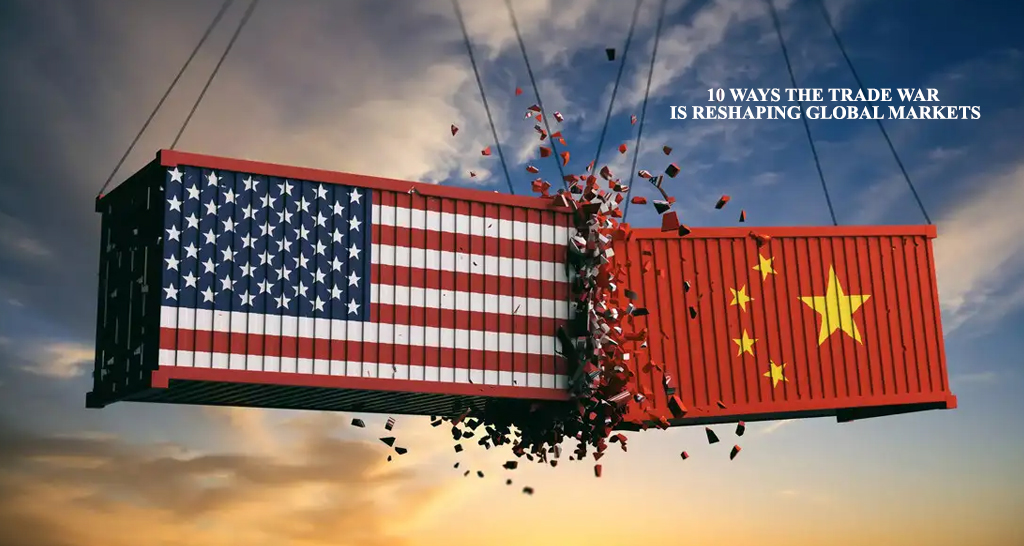The intensifying trade conflict between leading economies, especially the United States and China, has significantly impacted global markets. This economic confrontation, characterized by tariffs, disruptions in supply chains, and changing alliances, is altering the operational dynamics of businesses and nations. Below are ten crucial ways in which the trade war is affecting global markets:
Supply Chain Reconfigurations
Businesses are broadening their supply chains to minimize reliance on a single nation, resulting in heightened manufacturing activities in Southeast Asia, Mexico, and various other areas.
Rising Costs for Consumers
The rise in tariffs on items such as electronics, clothing, and agricultural goods has led to increased expenses, which are frequently transferred to consumers in the form of elevated prices.
Shift in Global Trade Routes
Countries are modifying trade routes in search of alternatives to conventional shipping lanes impacted by tariffs, thereby affecting the logistics and transportation sectors.
Impact on Global Investment
Investor caution due to uncertainty has led to volatility in stock markets and alterations in foreign direct investment trends.
Technological Decoupling
The trade conflict has hastened the separation of technology sectors, prompting nations to invest significantly in building their own capabilities, particularly in the areas of semiconductors and artificial intelligence.
Agricultural Disruptions
Farmers are encountering fresh obstacles as conventional export markets diminish. For instance, soybean producers in the United States have been compelled to seek new purchasers following the implementation of tariffs by China.
Currency Volatility
The economic instability resulting from the trade war has caused variations in currency values, which in turn have impacted global trade balances and investment movements.
Emergence of New Trade Agreements
In reaction to the trade war, nations are establishing new partnerships and agreements, including the Comprehensive and Progressive Agreement for Trans-Pacific Partnership (CPTPP).
Changes in Consumer Behavior
Consumers are becoming more conscious of where their products come from, resulting in a growing preference for locally-sourced or tariff-free goods.
Reshaping of Global Power Dynamics
The trade conflict is shaping geopolitical strategies, as countries utilize economic policies to enhance their international position, affecting various aspects including diplomacy and military partnerships.
In summary, the trade war extends beyond a mere conflict between two countries; it serves as a significant catalyst that is altering global markets, supply chains, and economic policies on a worldwide scale.






